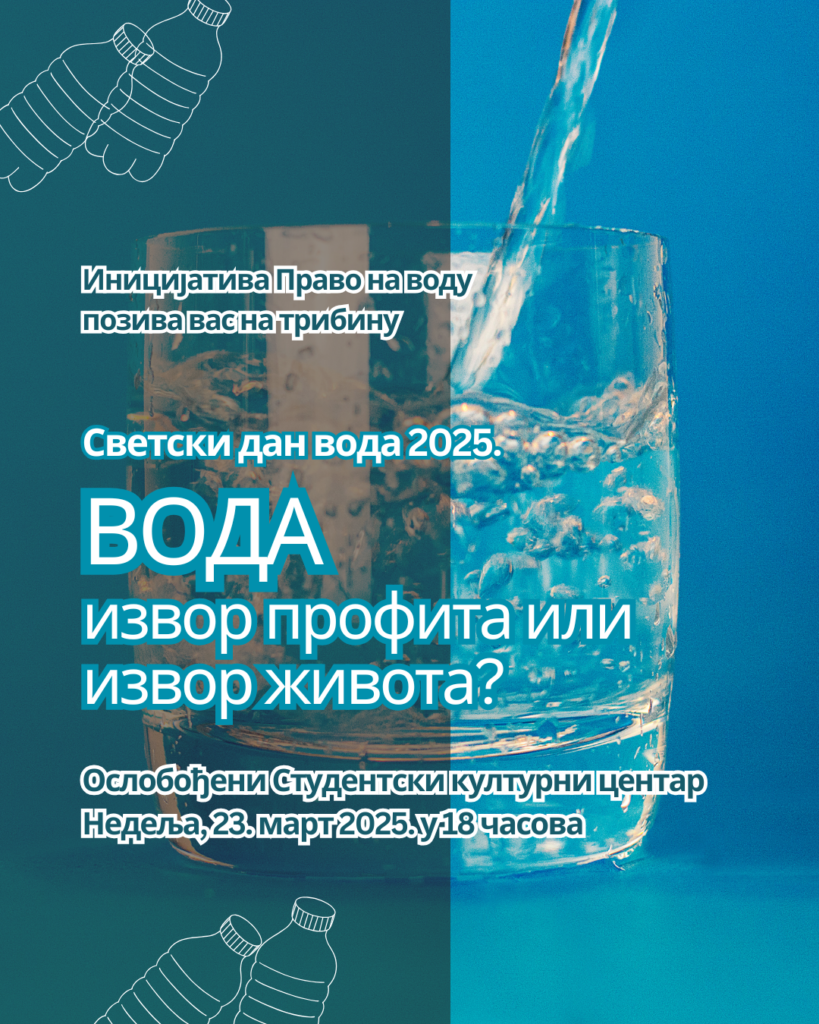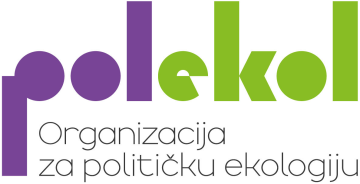On the occasion of World Water Day, the Right to Water initiative, in cooperation with the Liberated Student Cultural Center, is organizing a forum to draw attention to the inaccessibility of clean drinking water, as well as the growing problem of commercialization and privatization of water, especially through the bottled water market. Although water is a basic human right and should be available to all, it is increasingly becoming a commodity subject to market laws and private interests.
Why are we talking about bottled water?
As many as 1,500,000 citizens in Serbia occasionally or permanently do not have access to clean drinking water. Waters are threatened by pollution, excessive exploitation and privatization. Zrenjanin and its surroundings have not had access to clean drinking water for more than 20 years. Despite all these problems, in a large part of Serbia, tap water is completely safe for drinking and available at an extremely low price – 1,000 liters of tap water costs as much as 1-2 liters of that in the market. In moments of water shortage or distrust in institutions, we reach for bottled water more and more often.
Water shortages are usually not the result of a lack of this natural asset or knowledge about how to preserve it, but of political decisions and inadequate investments. Instead of investing in the improvement and maintenance of the water infrastructure, the system is allowed to deteriorate, creating space for corporations to offer bottled water as a solution.
While mineral water is justified due to its health benefits (recommended in the amount of 2 glasses per day), most bottled water has no added value – on the contrary, its mass circulation leads to uncontrolled pumping of groundwater and ecological disaster in the form of plastic waste.
Hidden danger – privatization “by the back door”
The latest amendments to the Law on Public Utilities increasingly open the door to the privatization of water supply through public-private partnerships (PPP). In practice, such arrangements have proven to be unfavorable to the public interest, as they enable private companies to:
🔹 Management of public goods with guaranteed profit, while costs and risks remain the burden of citizens.
🔹 Loss of democratic control over water supply, which gradually turns citizens into buyers of water instead of its users.
🔹 Increasing the price of water through market mechanisms, instead of remaining an affordable public resource.
These key topics will be discussed by:
🗣 Dr. Aleksandar Stevanović – doctor of social medicine
🗣 Iskra Krstić – researcher from Polekol
🗣 Žaklina Živković – member of the Right to Water initiative
Do you know?
🔹 The global bottled water industry is worth over $270 billion a year – despite the fact that most bottled water comes from public taps.
🔹 Pumping groundwater without control can lead to resource depletion and serious environmental consequences.
🔹 Every second, more than 20,000 plastic water bottles are sold in the world, while only a small part is recycled.
Come to discuss these problems and defend the right to water as a public good!
Admission is free!

